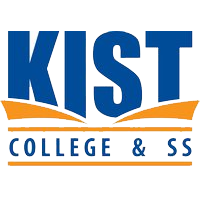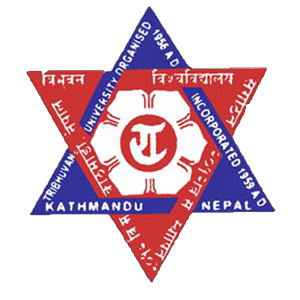Overview
Bachelor of Science (BSc) in Microbiology – NIST Higher Education, Lainchaur, Kathmandu
BSc in Microbiology at NIST Higher Education (National College—NACOL), Lainchaur, Kathmandu, runs under Tribhuvan University’s Institute of Science and Technology (IOST). The program introduces bacteriology, virology, mycology, immunology, microbial genetics, and laboratory methods through a semester-based structure.
NACOL delivers classroom teaching, supervised practicals, and guided projects inside its microbiology labs in Lainchaur. IOST sets the curriculum framework, academic calendar, and entrance process published on the official portal.
Highlights
Program: BSc in Microbiology (semester system)
Affiliation: Tribhuvan University, Institute of Science and Technology (IOST)
Host Campus: National College (NACOL), NIST Higher Education, Lainchaur, Kathmandu
Delivery: Theory, practicals, tutorials, journal clubs, field/lab visits, and project/report work
Entrance: Online IOST BSc entrance (Biological Group) as per the official intake notice
Curriculum Details
The program builds from biological foundations to applied microbiology.
-
Foundations in life science: Cell biology, biochemistry context for microbes, basic biostatistics, and scientific communication.
-
Core microbiology: General microbiology, microbial physiology and metabolism, microbial genetics, and microbial ecology.
-
Medical and health focus: Medical microbiology, immunology, pathogenic mechanisms, antimicrobial agents, and laboratory diagnosis principles.
-
Environmental and industrial focus: Environmental microbiology, food and dairy microbiology, fermentation basics, bioprocess concepts, and quality assurance.
-
Laboratory practice: Microscopy, culture and isolation, sterilization and asepsis, media preparation, staining, biochemical tests, enumeration, and documentation.
-
Research exposure: Mini-projects, seminar presentations, and a final report or project as prescribed by IOST’s semester guidelines.
Campus delivery mirrors IOST’s syllabus sequencing and practical hour expectations to keep theory and lab learning synchronized.
Objectives
-
Build clear understanding of microbial structure, function, growth, and diversity.
-
Train students to follow safe lab practice, accurate record-keeping, and validated test methods.
-
Introduce clinical, environmental, and industrial applications relevant to Nepal’s context.
-
Prepare a pathway to master’s study (e.g., MSc Microbiology, Biotechnology) or entry-level lab roles.
Scope
Graduates work across hospital and diagnostic laboratories, food and beverage quality units, pharmaceutical and biotech facilities, water testing labs, and environmental monitoring projects. Many graduates pursue MSc programs to specialize in medical, food/industrial, or environmental microbiology.
Learning Outcomes
Students who complete the degree should be able to:
-
Apply aseptic technique, culture methods, and identification workflows safely.
-
Interpret antibiograms and basic susceptibility patterns under supervision.
-
Use standard operating procedures (SOPs), maintain lab notebooks, and prepare concise reports.
-
Explain microbial roles in disease, environment, food systems, and industry.
-
Present findings using tables, micrographs, and properly cited references.
Skill Development Modules
-
Core lab technique: Media formulation, streaking and isolation, staining series, biochemical profiling, MIC basics, and sterility checks.
-
Data skills: Basic statistics for lab results, error awareness, and graphing for reports.
-
Quality and safety: Biosafety levels, PPE, waste handling, calibration logs, and internal QC records.
-
Communication: Research abstracts, poster or slide decks, and oral defense practice.
-
Field exposure: Visits to water plants, dairies, or hospitals as scheduled by campus.
Teaching Methodology
Faculty combine lectures, demonstrations, rotating practicals, journal readings, and case-based discussions. Internal assessments include short tests, lab records, presentations, and project checkpoints. Semester-end examinations run under IOST rules published each intake cycle.
Admission Requirements
-
Academic background: 10+2 Science or equivalent (Biological Group) from a recognized board meeting IOST’s current BSc entrance eligibility.
-
Entrance process: Online application and computer-based/center-based IOST BSc entrance for the Biological Group; selection follows the official merit list.
-
Documents for campus admission: Application form, photographs, academic transcripts/mark sheets, character and migration certificates, ID, and entrance proof per intake notice.
IOST posts entrance windows, model questions, and results on its official site. Applicants should follow the current-year notice for exact grade/marks thresholds and deadlines.
Career Opportunities
-
Diagnostic services: Sample reception, culture and sensitivity, staining and microscopy, test reporting under senior oversight.
-
Food and dairy labs: Microbial counts, hygiene monitoring, shelf-life checks, and documentation.
-
Pharma/biotech: Environmental monitoring, water and surface bioburden tests, raw material checks, and basic validation support.
-
Water and environment: Potability testing, wastewater indices, and soil or air microbe tracking.
-
Research and teaching: Assistant roles in academic labs; MSc study unlocks advanced posts.
Scholarships and Financial Aid
-
Merit-linked provisions: The campus publishes merit considerations and performance-based support when available.
-
Need-sensitive options: Limited schemes may open per session with stated criteria and documents.
Applicants should confirm the current roster at the NACOL/NIST admission desk during the intake window.
Why Choose This Course?
TU affiliation and IOST governance provide a clear semester path and standardized evaluation. Lainchaur location offers access to hospitals, testing labs, and public agencies for academic ties and visits. Campus labs and supervision help you build a usable skills file—lab records, reports, and a small project—that supports entry-level interviews or MSc applications.
Conclusion
BSc in Microbiology at NIST Higher Education (NACOL) gives Nepali students a structured entry into laboratory science under TU-IOST rules. The program blends theory with scheduled practicals and applied tasks so that graduates carry both conceptual knowledge and basic laboratory competence recognized across Nepal’s academic and service sectors.
FAQ
Q1. Which body conducts the entrance for BSc Microbiology?
Tribhuvan University’s IOST manages the BSc entrance and posts notices, timelines, and results on its official portal.
Q2. Where is the host campus located?
National College (NACOL), NIST Higher Education, is located at Lainchaur, Kathmandu.
Q3. Does the course include research or project work?
Students complete mini-projects or a final report component as part of semester requirements set by IOST and delivered by the campus.
Q4. What types of lab techniques will I learn?
Culture and isolation, staining, biochemical tests, enumeration, basic antibiotic sensitivity testing, and documentation under SOPs.
Q5. Which sectors hire BSc Microbiology graduates?
Diagnostic labs, food and beverage industries, pharmaceutical and biotech units, water and environment testing labs, and academic/research institutions.


-9075.jpg)




















